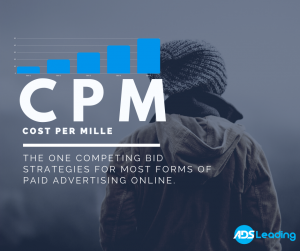When selecting the segmentation plan for your campaigns, there are many choices. You can go Multi-Geo, you can expand a Run-of-Network campaign, you can target a specific set of countries, and you can trust on previously collected whitelist data and launch a source / target campaign. However, these are not all options, there are more. If you have understanding about what type of website or content the target audience is looking for, you can select the keyword targeting option.
Do you know what keyword targeting is?
Keyword targeting works in a similar manner to source targeting. When you are creating your campaign, you have to send a list of keywords. The traffic will come from sources or domains added by publishers and that have selected phrases. Publishers using traffic sources group their inventory by category to help more exact keyword matches.
In pop traffic, keywords are matched to the name or content of a web page that a visitor is on. In domain traffic, keywords are matched against misspelled domain names.
To make it easier for you to understand, let us look at the following example, if you are running an e-commerce campaign and are promoting exercise clothing, you can use keywords such as “workout clothes”, “activewear” or “sportswear” for this way you can get traffic from web pages that show just that type of content. With this, it will be much more likely that users who are already looking to purchase this type of product enter your ad and may be interested in what you are offering.
Learn when and how you have to use keyword targeting
As noted earlier in this post, keyword targeting works very well for e-commerce campaigns. In the case of running ads for actual products, the best efficient way of targeting is to run those ads on thematically similar websites. In the case of domain traffic, if a user who wants to buy shoes wrongly types the URL and the correct URL is one of her keywords, the user is going to be redirected directly to your ad. If your lander directs them to a store with shoes and it turns out that they wanted to visit an online store with shoes, they will at least look around.
The most common question we see related to keyword targeting is whether you can bid on popular website names. Of course, this is what keyword targeting is all about. You have to make offers for website names and additionally for words and phrases that match the content that you are promoting.
So that you can properly use keyword targeting, we recommend following these three basic rules:
- Do not use special characters (like &, #, @) or unusual word combinations (like, for example: sportclothing) and when you use domain names you have to omit the http: // or www part of the address and better use the sample.com pattern instead.
- The Google search style does not work with keywords. It is better to use one-word keywords. Multi-word keywords are also supported, but retain in your mind that the longer the phrase, the less traffic will match your phrase.
- Never use misspelled domain names as keywords. You have to use the accurate names and the keywords will continue to match the misspelled domains.
If you are still wondering if keyword targeting is right for you, we will tell you that this really works well for almost any vertical. It is primarily recommended for more specific offerings such as crypto, ecommerce, streaming (like Hulu or Netflix), services, and any other offering that is for a precise niche.
Surely, at some point, you have read an article on a specific topic and you realize that some words have hyperlinks. This is one of the most used forms of injection traffic. This traffic comes from a toolbar that inserts pop-up ads on a web page, when a user types a URL, the ads are injected under keywords that link to affiliate offers. The ads are then automatically triggered through the toolbars installed on users’ web browsers. Injection traffic along with keyword targeting and ecommerce vertical is the best combination for well optimized and successful campaigns.
If we were to mention a vertical that might not be the best idea for keyword targeting, we would say sweepstakes, as these could be very general for working with keywords. Remember that the more specific and small the niche, the more sense it makes to use keywords.
Exact keyword targeting in comparison with broad
Bearing in mind, that each website is tagged by a series of keywords that describe its content in a very precise way, let us clarify how the keywords that you add to your campaigns are matched with the keywords attached to a website.
There are currently two forms of keyword matching:
Broad keyword targeting means that not only the keyword you submitted, but also the variations of that keyword will be matching the keywords on the website. That is, if you use “store” as a keyword with a broad keyword targeting, this means that it will also bid on the traffic that your keyword has, so “store” would too purchase traffic from “www.store” and “store.com”. By this, we also mean that you would bid on subdomains like “www.store.com/products” or “sale.store.com”
Broad targeting works very well with domain traffic, as “shoes” will target “athletic shoes,” “high heels,” or “best running shoes.”
Exact keyword targeting means that the traffic source will only send you traffic when there is an exact match between the website’s keyword and your keyword. That is, if you use “store” as a keyword, it means that you would not bid for traffic that does not exactly match this, which means that you will not be receiving traffic from websites labeled “www.store” or “store.com”.
If your keyword is very short such as “hat”, then you should opt for an exact orientation so that that way you can avoid matching keywords such as “chat” or “haters”.
The negative keywords option allows you to suppress certain keywords from searches in your exact and broad keyword targeting. You can set negative keywords when there is a specific domain phrase from which you do not want to receive traffic.
Let’s see the following example so that you understand it much better, if you are currently advertising an e-commerce store which is selling belts, you are going to want to get traffic from all kinds of keywords related to fashion, clothing and accessories. However, you are not going to want to bid on websites like greenbelt.com at all. When you use negative keywords, this allows you to improve your traffic by avoiding inaccurate matches, which are very commonly caused by ambiguous words or similar names of very different brands.
In what way you can find appropriate keywords.
The easiest way to find matching keywords is to support you with the use of tools like a traffic calculator. This tool is very important and shows historical data on the volumes of the most popular keywords. The traffic calculator is the one to start your search, as it displays the keywords that receive the highest volume along with their average bids. If it turns out that you cannot find the keyword you are looking for in the traffic calculator, you should not worry, this does not mean that your keyword does not exist, this means that the traffic calculator does not have enough data to tell you the exact volume and sale price.
Keywords can be anything. You can Google the article that you are currently promoting and then search for the words that are used most frequently to describe it. If you are trying to sell a travel guide, you just have to Google the words and then use the websites that were shown on the first page of the search as keywords.
You have to use the resources that exist on the web. You can use free tools that allow you to look at various keywords related to a particular category with your volumes. Actually, this will be of great help.
Typical faults
If your keyword campaigns are not performing as well as you expected, it is very likely that you have made some basic mistakes that prevent the traffic from matching correctly. Before you decide to change your orientation, try consulting the following list of common mistakes and make sure you never make any of these faults.
- Use the full URL instead of just the relevant part.
- Use misspelled keywords. Yes, buying traffic from misspelled domains is good practice and this is why the keyword algorithm already matches keywords to their misspelled versions.
- Use special characters. If you use special characters, these will be included in keyword searches that would be drastically limiting your traffic.
- Use long phrases. Even though you think your product is best described in a four-word phrase, it is highly unlikely that there are many websites tagged with an identical group of words.
- Use the wrong targeting setting. You should never forget the existing options to establish negative keywords and use a broad and exact targeting according to your specific need.
Positively, this article has some great information to make you comfortable trying keyword targeting. If you have not already, we hope you are motivated to use it. As always, the AdsLeading community is always here to support you and if you have any questions or concerns, feel free to send us a message and we will gladly respond.

